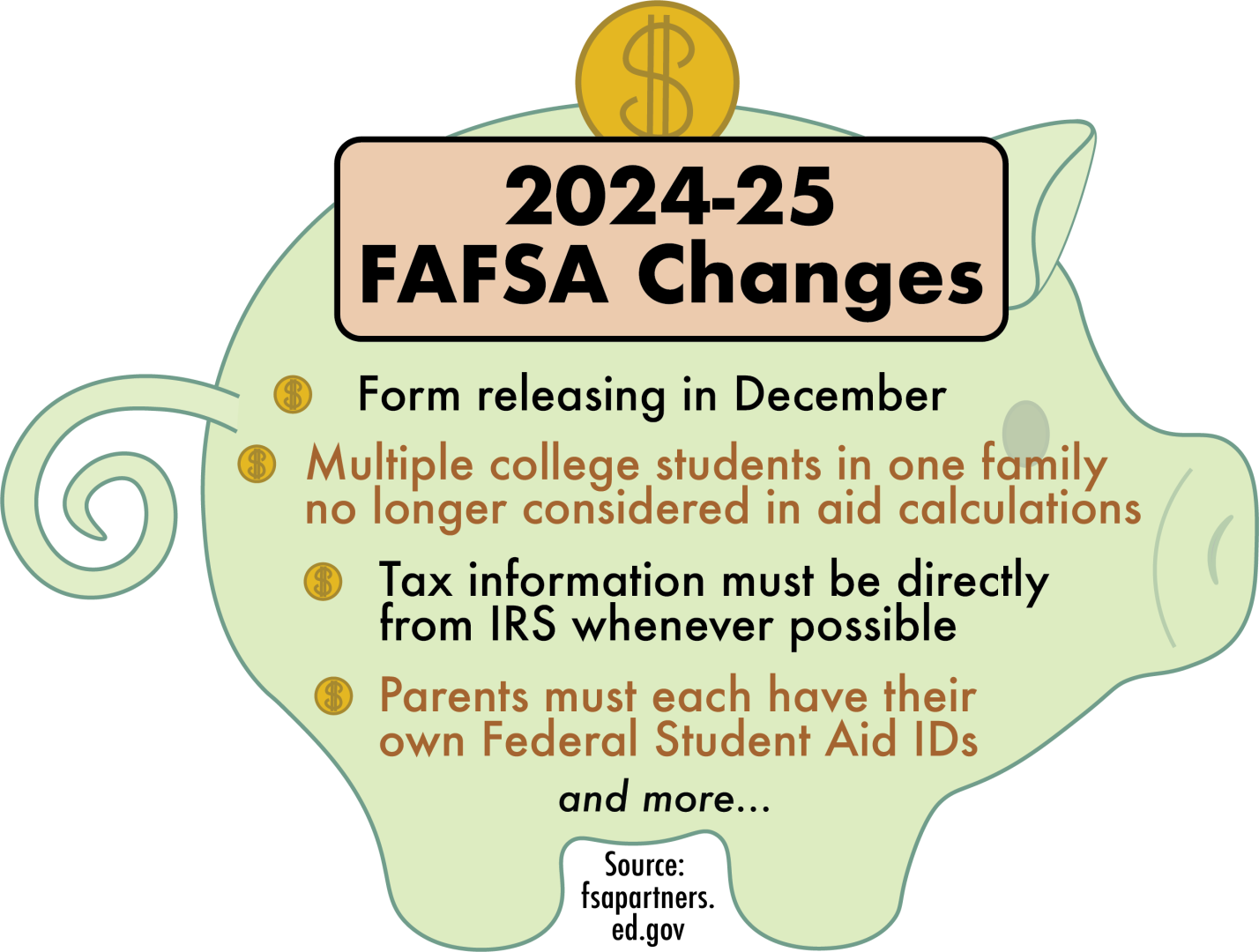The Free Application for Federal Student Aid (FAFSA) is the gateway to grants, loans, and work-study programs that millions of students rely on each year. As 2025 approaches, key questions arise about how policy decisions could impact the FAFSA process and eligibility criteria. Whether you're a student, parent, or educator, staying informed about the intersection of FAFSA 2025 and Trump-era policies is essential for maximizing financial aid opportunities.
In recent years, debates around federal student aid have intensified, with policymakers scrutinizing the structure and accessibility of programs like FAFSA. Former President Trump's administration introduced several initiatives aimed at streamlining the FAFSA process and reducing regulatory burdens. These changes, combined with ongoing discussions about college affordability, have sparked conversations about the future of financial aid. For students planning to apply for FAFSA 2025, understanding these dynamics can help you navigate the application process with confidence.
As we delve deeper into the topic, this article will explore the potential implications of Trump's policies on FAFSA 2025, answer frequently asked questions, and provide actionable tips for applicants. From eligibility requirements to anticipated changes, we aim to equip you with the knowledge needed to secure the financial support you deserve. Whether you're a first-time applicant or a returning student, this guide will serve as a comprehensive resource for all things related to FAFSA 2025 Trump.
Read also:Discover The Best Deals At Dollar Store Princeton A Shoppers Guide
Table of Contents
- Biography of Donald Trump
- What is FAFSA 2025 Trump?
- How Did Trump Change FAFSA?
- Will Trump's Policies Affect FAFSA 2025?
- Key Features of FAFSA 2025
- How to Apply for FAFSA 2025?
- What Are the Eligibility Requirements?
- Common Mistakes to Avoid
- Tips for Maximizing Financial Aid
- Frequently Asked Questions
Biography of Donald Trump
Before diving into the specifics of FAFSA 2025 Trump, it's important to understand the background of the former president whose policies have influenced federal student aid programs. Donald Trump, the 45th President of the United States, served from January 2017 to January 2021. Known for his business background and outspoken leadership style, Trump implemented several education-related reforms during his tenure.
| Full Name | Donald John Trump |
|---|---|
| Date of Birth | June 14, 1946 |
| Place of Birth | Queens, New York, USA |
| Political Party | Republican |
| Years in Office | 2017-2021 |
| Education | University of Pennsylvania (Wharton School) |
What is FAFSA 2025 Trump?
The term "FAFSA 2025 Trump" refers to the anticipated changes and policies surrounding the Free Application for Federal Student Aid in 2025, influenced by former President Trump's initiatives. While the FAFSA itself remains a federal program, policy decisions made during Trump's administration have shaped its current structure and could continue to impact future iterations.
How Did Trump Change FAFSA?
Under Trump's leadership, the Department of Education introduced several reforms aimed at simplifying the FAFSA process. These changes included reducing the number of questions on the application, increasing transparency in financial aid offers, and expanding Pell Grant eligibility. Such measures were designed to make the FAFSA more accessible to low-income students and families.
Will Trump's Policies Affect FAFSA 2025?
While Trump is no longer in office, his policies have set a precedent for future administrations. As of now, it remains unclear whether his initiatives will continue to influence FAFSA 2025. However, ongoing discussions about college affordability and student debt suggest that Trump's reforms may serve as a foundation for further improvements.
Key Features of FAFSA 2025
FAFSA 2025 is expected to build on recent advancements in the application process. Key features may include:
- Simplified questionnaires for faster completion.
- Enhanced tools for comparing financial aid packages.
- Increased funding for Pell Grants and other need-based programs.
How to Apply for FAFSA 2025?
Applying for FAFSA 2025 will likely follow a similar process to previous years, with some potential updates. To get started:
Read also:Discovering Qc Kinetix Pittsburgh Your Ultimate Guide To Regenerative Medicine
- Create an FSA ID at studentaid.gov.
- Gather necessary documents, such as tax returns and W-2 forms.
- Complete the online application before the deadline.
What Are the Eligibility Requirements?
To qualify for federal student aid through FAFSA 2025, applicants must meet specific criteria, including:
- Demonstrating financial need.
- Being a U.S. citizen or eligible non-citizen.
- Enrolling in an eligible degree or certificate program.
Common Mistakes to Avoid
When applying for FAFSA 2025, students and parents often make errors that can delay processing or reduce aid eligibility. Common mistakes include:
- Failing to submit the application on time.
- Not reporting all sources of income accurately.
- Overlooking state-specific deadlines for additional aid.
Tips for Maximizing Financial Aid
To ensure you receive the maximum financial aid possible, consider the following tips:
- Apply early to secure limited funds.
- Double-check your application for errors.
- Explore scholarships and grants in addition to federal aid.
Frequently Asked Questions
What is the deadline for FAFSA 2025 Trump?
The federal deadline for FAFSA 2025 is typically June 30, 2025. However, state and institutional deadlines may vary, so it's important to check with your school or state agency.
How can I contact FAFSA support?
For assistance with FAFSA 2025, you can contact the Federal Student Aid Information Center at 1-800-433-3243 or visit their website at studentaid.gov.
Will FAFSA 2025 Trump include new reforms?
While specific reforms for FAFSA 2025 have not been announced, ongoing discussions suggest that simplification and accessibility will remain priorities.
Can I apply for FAFSA 2025 Trump if I'm not a U.S. citizen?
Non-citizens may be eligible for federal student aid if they meet certain criteria, such as having a valid Social Security Number and qualifying immigration status.
In conclusion, understanding the nuances of FAFSA 2025 Trump is essential for anyone seeking financial aid for higher education. By staying informed about policy changes and preparing thoroughly for the application process, you can secure the resources needed to achieve your academic goals.

